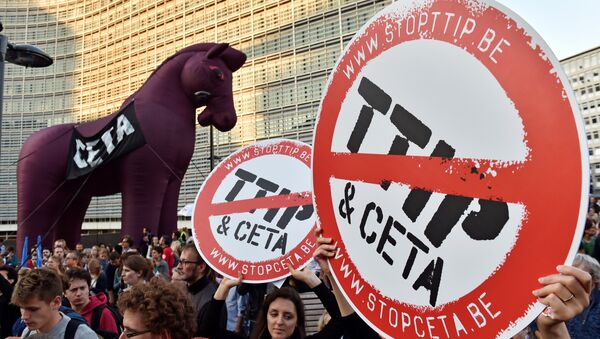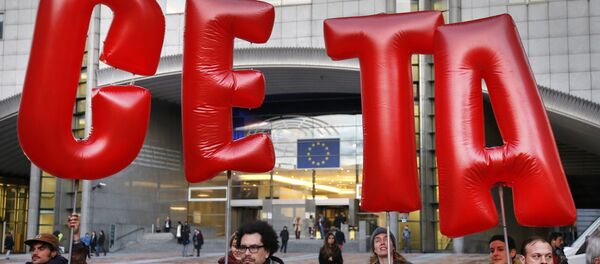MOSCOW (Sputnik) — On October 27, the 28-nation bloc and Ottawa were expected to sign CETA at the joint EU-Canada Summit. However, on Tuesday, European Parliament President Martin Schulz said there was little chance that CETA would be signed as its ratification stumbled in Belgium.
"The [European] Commission and even many members of the European Parliament try to push for exclusive EU competences now. The legal opinion of the European Court of Justice on the Singapore agreement will be decisive on this," Fabio De Masi from the leftist Die Linke party suggested, when asked what Brussels might do to salvage the deal.
The ECJ is still reviewing whether Brussels has exclusive competence to sign and ratify a free trade agreement with Singapore, concluded in October 2014, or whether it should get an approval by all member-states' parliament, as CETA has to. The final ruling on the Singapore case is expected next spring.
Initially, CETA was to be concluded without the involvement of national parliaments, but in early July, following the outrage in some EU countries, the President of the European Commission Jean-Claude Juncker agreed to conclude CETA was a mixed agreement, meaning it needed approval by all of the 38 national and regional parliaments.
CETA aims to establish a free trade zone between Canada and the European Union, scrapping more than 98 percent of the existing tariffs between Ottawa and Brussels. Opponents fear it would undermine standards and regulations on environmental protection, health, safety and workers' rights.



